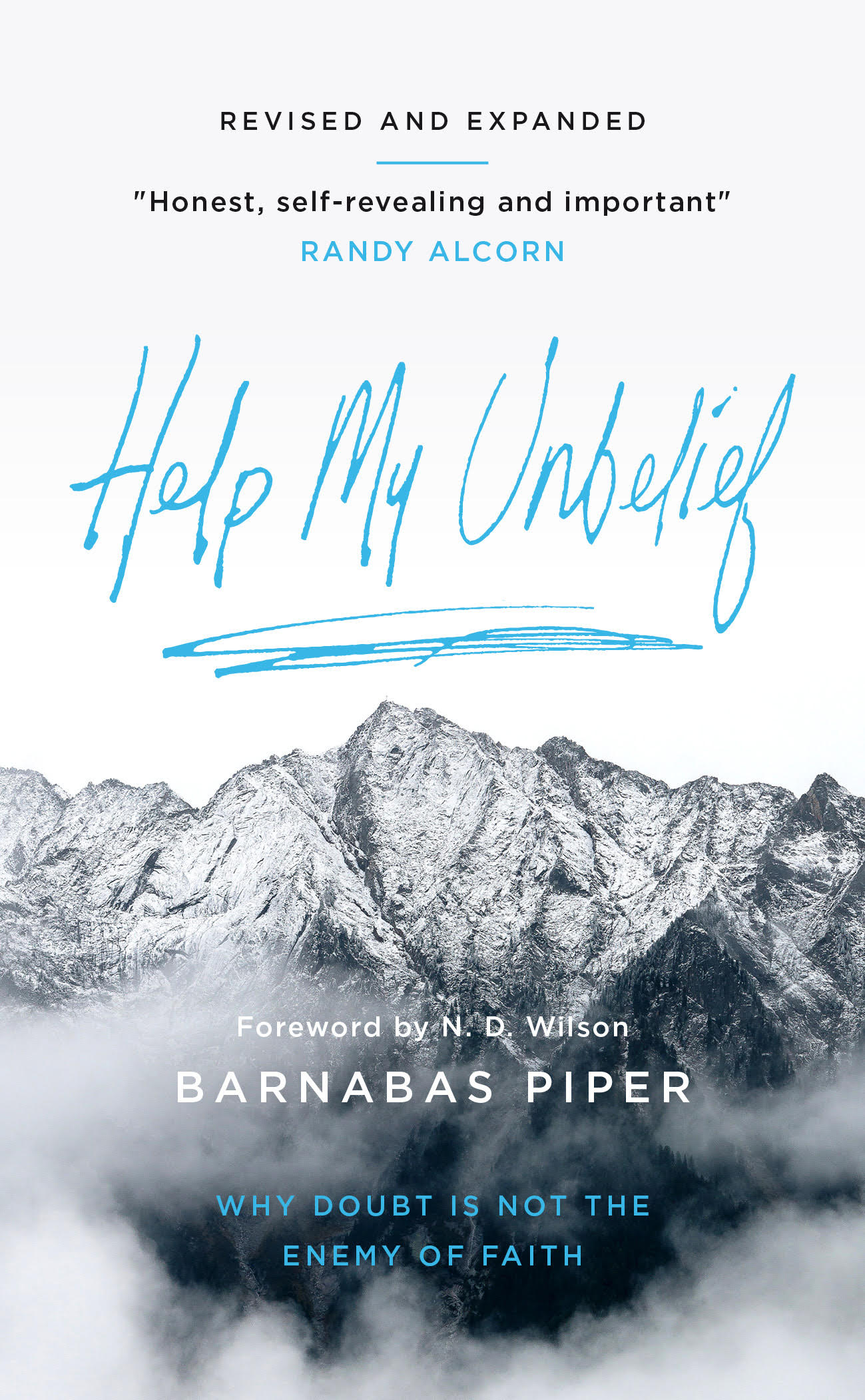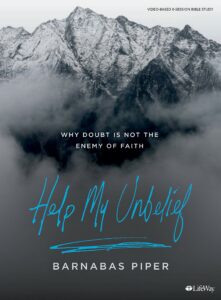The word “doubt” is an uncomfortable one in most Christian circles. It’s something that is frowned upon or even condemned in many church circles. But that doesn’t stop us from doubting; it just makes doubting shameful for many of us. We don’t know what to do with it, who to talk to about it, or how to talk about it. We just know that our questions feel like they are pulling us away from God.
But what if they aren’t? What if doubt isn’t inherently wrong? And what if doubt is something that doesn’t necessarily undermine our faith but can actually lead us deeper into faith? How we respond when we doubt determines whether it is “unbelieving doubt” (that which leads us away from faith) or “believing doubt” (that which leads us to deeper faith).
Here are four ways to distinguish unbelieving doubt from believing doubt.
1. Unbelieving doubt asks questions in order to challenge. Believing doubt asks questions in order to learn.
Think about a prosecutor asking questions of a witness. He isn’t asking questions to learn something but rather to disprove something, to make a point. He has the answers already and is challenging the witness. This is the attitude of unbelieving doubt. It puts God on the witness stand and treats Him as if He owes us answers and as if we are the authority.
Now think about a young child asking her parents questions. She has total trust in their ability to answer and is simply seeking to learn and understand. This is what the Bible calls “childlike” faith and is a good example of believing doubt. It isn’t sure. It doesn’t know. But it asks with trust in the one who has authority and power.
2. Unbelieving doubt takes questions to anyone but Jesus. Believing doubt takes questions directly to Jesus.
When we doubt in an unbelieving way our instinct is not to seek the Lord in prayer or through His Word. Our instinct is to hide our doubts, to pose questions to friends, to seek experts, to read, to explore. While all of these (except hiding) can help us, we usually make the mistake of doing them in lieu of going to Jesus. Whether it is out of guilt or arrogance (or both) we turn away from Him and act as if He doesn’t hold the keys to belief. We disregard and dishonor Him by thinking we can find a better solution anywhere than in His Word and His presence.
Now consider the father from Mark 9 who brought his demon possessed son to Jesus, the father who uttered that simple, profound prayer— “I believe; help my unbelief.” He came to Jesus as a doubter. He expressed his doubts to the Son of God. And he asked for help with them. He was not rock-solid confident. He wasn’t certain. He doubted, and he came to Jesus with that doubt in his time of need. And Jesus helped him, as He will for every doubter who comes to Him. This is the response of a believing doubter.
3. Unbelieving doubt questions God’s character because He is beyond our understanding. Believing doubt trusts in God’s character because He is beyond our understanding.
At its base, doubt is simply not knowing something, not being sure. And it is inevitable because we are finite and sinful people who are called to trust in an infinite and perfect God. We simply can’t understand everything about Him. We will encounter numerous aspects of God’s character, plan, and work that befuddle us because His “wondrous knowledge is beyond” us (Psalm 139:6).
So here’s the rub: when we are befuddled, do we see that as reason not to trust God or do we see that as evidence God is eminently trustworthy? Unbelieving doubt sees mystery as a threat and as ominously untrustworthy. When it doesn’t understand something about God it sees that as a mark against God’s character.
Believing doubt, on the other hand, reflects Hebrews 11:1. “Now faith is the reality of what is hoped for, the proof of what is not seen.” When believing doubt encounters the unknown it responds with faith—resting in what it does know about God’s character and promises from His Word to find confidence in what it doesn’t understand. The mystery is not a threat but rather a promise that God is working in ways beyond our limited capacity to see and understand.
4. Unbelieving doubt says, “not Your will, but mine be done.” Believing doubt says, “not my will, but Yours be done.”
Adam and Eve were the original unbelieving doubters. They listened to what God told them and decided they knew better. Unbelieving doubt is willful rebellion against God just like theirs. It is the insistence that we know better than God and would be better off if He did things our way. Ultimately it seeks to subjugate God to our authority.
Christ sets the example for the believing doubter. In our moments of greatest uncertainty and in the face of our biggest fears and questions we are to respond as He did in the garden of Gethsemane: make our plea to God for help and then submit to His perfect will. We will not always get our way. We will not always get clear answers. But God will always hear us and respond to us. He will give us what is best and what we need. And, on top of His example, the work of Christ Himself gives us this assurance.
For more on faith and doubt check out my book Help My Unbelief: Why Doubt Is Not The Enemy of Faith and the accompanying 6 session small group study.
This article was originally published at LifeWay Voices and is used with permission.


